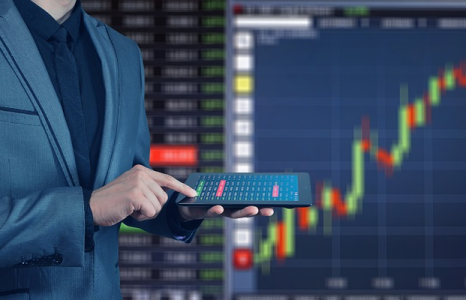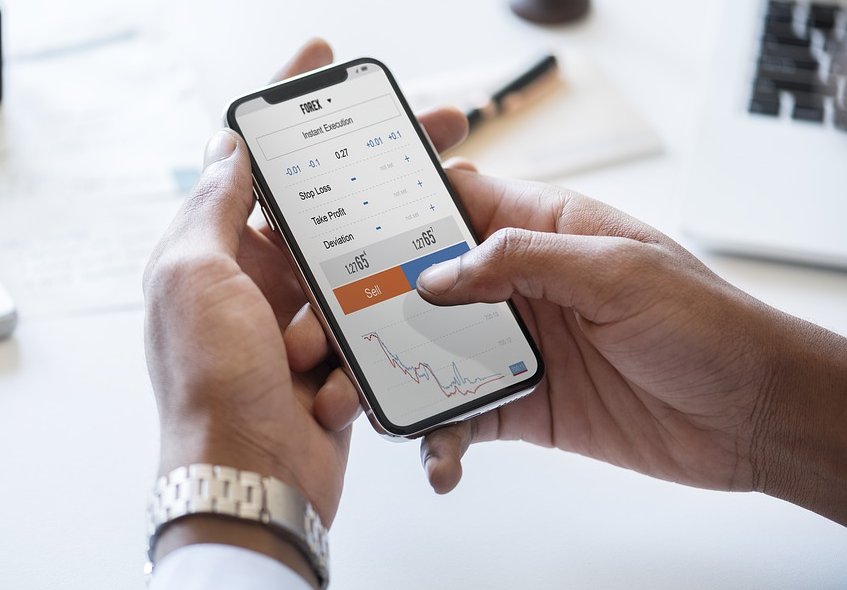Make Trading Your Primary Business?
Living exclusively from Trading – Is it even possible?
The question of whether one can make a living from trading cannot be answered in general terms. Of course, the question of how good you are as a trader plays a role. But there are also other factors that have a significant influence on success as a full-time trader.
Live from Trading: An ambitious Plan
Those who are determined to live purely from day trading in the future should first realistically consider what this means for them. It doesn’t mean that nothing will be worked anymore and the money will be in the account more and more by itself. On the contrary: Daytrading can be a very hard and stressful job.
First of all, it is a job in which the trader only earns money if he really sits actively in front of the PC and trades. If he is ill, on vacation or otherwise a reason, why straight is not acted, it must be only the PC broken – then also no money is earned around from it to be able to live.
Besides it means that no firm income is present. If a month runs really badly once, even a high loss can stand at the end of the month. Then the capital base must be high enough to compensate for this over time – a situation that can be emotionally very stressful, especially if you are even a family man.
This article will explain the opportunities and risks of being a full-time trader and give you an overview of what it really means to make a living from day trading.
The Profits must have a certain Constancy
The reason is logical: Those who do not constantly make profits make more and more losses and are finally broke. Logically, you can no longer make a living from this. Therefore it is elementary that you really dare to generate regular profits in order to be able to live on them and perhaps even feed a family. You have to ask yourself the question openly and honestly: am I good enough?
The worst approach would be to just quit your job and go headlong into trading.
We remember:
Risk is the worst enemy of any trader.
Only those who deal with risk in a controlled manner have a chance of success. Therefore you should not rush into anything.
If you are really determined to make a living out of trading one day, it’s best to start with it next to your normal job. This has two major advantages:
You still have your main financial foothold, so in case of doubt you won’t be without something.
On the other hand, and this is at least as important, you are confronted with life as a trader and can find out whether it is really the right decision for you.
You really shouldn’t underestimate the day trading profession at the beginning!
One of the most popular international trading platforms is Plus500, where even cryptocurrency CFDs can be traded nowadays. You can check out a in-depth review about Plus500 on this page.
Your Expenses, your Capital and your Discipline
This is one of the most important aspects of life as a trader. As mentioned above, you can never rely on profits when trading on an exchange. Even the best looking trade can always end in a loss and go wrong. Therefore your expenses and your capital play a not insignificant role. There are several reasons for this.
 If your monthly expenses are relatively high and can only be covered by your job or your day trading profits, then you may well run into problems if there is a dry spell. A good time as a trader depends not only on your personal success, but also to a not inconsiderable extent on the market itself.
If your monthly expenses are relatively high and can only be covered by your job or your day trading profits, then you may well run into problems if there is a dry spell. A good time as a trader depends not only on your personal success, but also to a not inconsiderable extent on the market itself.
In the summer months, for example, trading volumes are not always constantly high. This is often referred to as the “summer slump”. If there is no volume in the market, there are significantly fewer opportunities to trade profitably. The most popular tool to analyze charts is Tradingview, by the way.
So if you live “at the limit”, it can be clearly to your disadvantage if the profits fail to materialize for a while. If your trading is your only financial mainstay at the moment, this can lead to bankruptcy in the worst case.
In the case of professional traders, it is not only important how much you earn, but also how much you spend on life each month. A sufficiently large capital base can protect you for a while. But even this is quickly used up if you have a family to feed.
Therefore, the monthly expenses should be calculated in such a way that even a dry spell cannot drive you too quickly into a corner. Especially with full-time trading, this is an essential part of good risk management.
The second important point in planning is the capital that is used for trading. On the one hand, you should have an approximate goal as to how your performance should look. A target between 1% and 3% per month is achievable, but is also ambitious and requires a lot of skill, experience and discipline.
You should realistically assess how high an interest rate is on the current capital market if you do not want to take any risks. Based on the current key interest rate policy, this tends towards zero. Conversely, targets of 8% and upwards per month, which some gurus are spreading, are simply not realistic.
Nobody will generate these profits in the long run and they are, if at all, associated with an extremely high risk, for example by using far too much capital per trade. We now know how quickly this can lead to a total loss.
So if you decide to make a living from day trading, you need capital that will pay you enough monthly interest at a rate of 1% to cover all your costs. If we assume total monthly costs of around € 1500, then you will need a capital of at least € 150,000 in order to limit your risk. If you reduce your expenses accordingly, you can also live from trading with less capital.
It should be only an idea of the realistic conditions. Of course it is theoretically possible to earn 3% and more per month. However, if you continue to bear in mind that even risky investments such as corporate bonds bring you 3% a year, then 3% a month is really extremely ambitious.
Trading has to be regarded as a Job
Those who are convinced that one day they will make a living as a trader also need good preparation off the beaten track. The first step is to analyze your current situation. Does this allow you to get out of a secure job and enter the windy fluctuations of the Forex market? For example, do you have to pay off a loan and are dependent on being able to pay a certain amount to the bank every month? These and similar questions should be carefully considered beforehand.
You also need the support of your family. Trading means just as hard or even harder work than a job as an employee. As a trader, you are a freelancer. You now have to take care of your own health insurance and your family’s insurance, you now have the risks for your life completely in your own hands. Can you and do you want to take responsibility for this?
You should also be prepared for the fact that your working hours depend on the market. You have to make sure that you work when the trading volume is high and then really concentrate on your work. Even if you actually have something else in mind at a certain time of the day, the work comes first in this case. That is not always easy.
As mentioned above, there may be a moderate downturn in the forex and equity markets at certain times of the year, so you are reliant on trading when the market is cheap. The stock market is, so to speak, your new employer, telling you when to work. Holiday and illness do not interest the stock market.
If you have children, you have to reconcile family and stock market.
Assessing Risks correctly
If trading has already become the main financial pillar, it should not only be about regular income, but also about capital preservation. It is especially important that you do not live from capital, but from income. Here the capital may not shrink, but should multiply in the optimal case even.
The calculation is conceivably simple:
With an interest rate of X% (i.e. the regular income), which you achieve by repeatedly investing your capital, the higher the income, the more capital you can spend on the investment. If you have a monthly salary surplus, do not constantly increase your standard of living, but invest the capital. In this way you can secure a higher income in the long term.
In addition, it is important that the capital is not touched, but understood as work equipment. The less you have, the lower your income will be. Except in an absolute emergency, nothing can be taken from the trading capital. Pretend that it is not there and do not include it in your personal capital stock or that of your family. You need this capital in order to be able to work as a trader at all.
Conclusion
Living as a trader and earning your salary with it is a responsible and difficult task. You should first put your life circumstances to the acid test in order to decide whether they permit a career change. If you really do implement it, you must have a lot of discipline and also systematically analyze your opportunities and risks.
It is no longer a question of a supplementary salary or a hobby – you trade to make a living from it. However, if you are disciplined and adapt your life to the job of a full-time trader, the turnaround can be successful and even fun. They are independent and self-reliant. However, never forget that this also entails a high level of responsibility.
If you manage to increase your capital on a regular basis and still remain risk conscious and stick to your rules, your income will also increase regularly. But trust only yourself – and never the financial market.
Professional Forex traders usually use Metatrader, which is the best-known and most popular trading tool which is platform independent, meaning most Forex trading brokers have Metatrader integrated in their System.
More Useful Links:
Day Trading Tips:
https://www.investopedia.com/articles/trading/06/daytradingretail.asp
Understand MetaTrader:
https://www.babypips.com/learn/forex/introduction-to-metatrader4
Position Size Calculator:
https://www.myfxbook.com/en/forex-calculators/position-size
